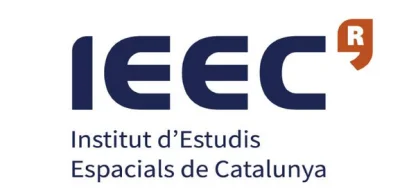Job opportunities
Graduated in Physics for the photometric calibration of the PhotSat mission
The Institute of Space Studies of Catalonia (IEEC) was established in February 1996 as a private non-profit foundation (NPO) to promote R&D in the space field in Catalonia. The IEEC is a research institute that studies all areas of knowledge and technologies applied to the space sector and space sciences, including astrophysics, cosmology, planetary science, Earth observation, navigation and space engineering. Its mission is to push the frontiers of space research from the scientific and technological fields for the maximum benefit of society. It should also be noted that the Foundation is attached to the Generalitat de Catalunya (Catalan Government) and forms part of its institutional public sector due to the fact that the Generalitat has a majority involvement in the entity.
Introduction
The purpose of this call is the selection process of a candidate to occupy a job position as a physics graduate in the PHOTSAT project of the Institut d'Estudis Spacials de Catalunya.
One of these nanosatellite missions is PhotSat, a 12U CubeSat that will scan the sky and extract photometry of the brightest stars. With two small telescopes developed at the IEEC, PhotSat will be able to observe stars in visible light and also in ultraviolet, while detecting and warning of possible supernovas. With agile development, the satellite is planned to be launched by the end of 2025.
The IEEC wants to hire a person to contribute to the creation of the photometric calibration procedure and algorithms for the photometric data obtained by PhotSat, both in the all-sky survey and the stare mode of specific regions of the sky. The final goal is the creation of catalogs with photometry data for the entire scientific community.
Description of position
- Position: 1 Graduated in Physics for the photometric
- Professional group: Group III
- Professional category: Researcher in training
- Working hours: 37,5 hours/week
- Working location: ICCUB (Institut de Ciències del Cosmos - University of Barcelona). Carrer de Martí i Franquès 1, 08028 Barcelona
Functions
The selected person will be in charge of the following functions:
- Establish the procedure to go from images to magnitudes (including their uncertainties) for each observed source.
- Make a complete characterization of the instrument. Establish which calibration observations (flatfields, bias, darks, calibration stars, photometric transformations, periods of observations during the mission, removal of cosmic and dead pixels, ...) are necessary in order to implement the procedure established in point above and ensure that these observations are available at the time of data calibration.
- Definition of the data model for the content of the catalog (magnitudes, uncertainties, flags, ...).
- Interaction with the instrument definition team in order to have up-to-date knowledge and assess the possible impact of photometric instrument design changes.
- Preparation of the necessary documentation (reports, papers, etc.) to present the results of the research.
Participation requirements and selection criteria
The following criteria will be assessed during the selection process:
- Formation: degree in Physics or double degree in Physics and Mathematics or similar.
- Fluent in English, spoken and written.
The following aspects will be considered desirable merits:
- Having taken the subjects of astronomy and astrophysics during the Degree. In particular, it will be valued to have studied the subject of Observational Astronomy and to have previous experience in the reduction of astronomical observations.
- High motivation to work in pioneering research.
- It will be valued to be in possession of, or to be studying, the master's degree in Astrophysics or similar. In particular, it will be valued to have studied the subjects of Astronomy from space with knowledge of nanosatellites, Stellar Astrophysics and Galactic Astronomy.
- Programming experience (Python, ...).
- Experience in Linux environments.
- Experience in the preparation of scientific documentation.
- Ability to lead, work independently and in a team.
- Written and verbal communication skills.
When evaluating the candidate's experience, the following will be also considered: the role or position held, the project budget, the degree of complexity of the work conducted and the consortia involved. Likewise, experience in the space sector and the level of internationalization will also be taken into account.
Contact and deadline
Interested persons who meet the established requirements can send the personal curriculum in PDF format, signed as certification, with a brief description of the tasks carried out in the positions previously occupied, to the email address: RecursosHumans@ieec.cat indicating the reference "Surnames and Name – OF_IEEC_134_2023" in the subject line of the email.
The reception of applications ends on
Selection procedure
Initially, a verification of the requirements of participation and study of the curriculum will be carried out to assess aspects related to the job to be covered. Next, a first selection of candidates will be made based on the curriculum contributed.
The shortlisted candidates will be called to a personal interview and/or a test to expand the detailed information in the curriculum and assessed aspects related to professional competences.
Interested persons must have the originals of the certificates accrediting the training and work experience mentioned in the curriculum and must submit them if required.
With the support of




